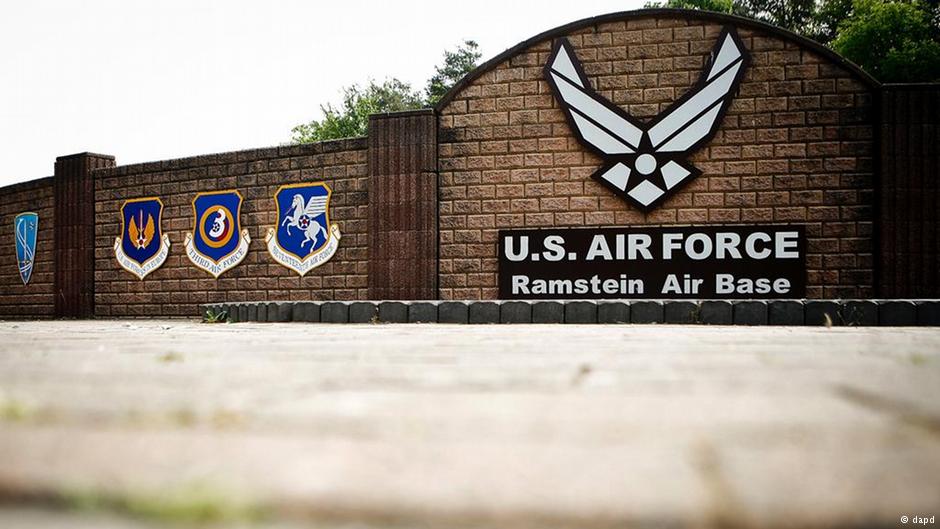
The United States is the country with the most overseas military bases in the world by a large margin. It has bases in 30 countries, followed by the United Kingdom, which has bases in half as many countries. In Germany, the U.S. has no less than 38 military bases, the most controversial being Ramstein Air Base—the U.S.’ largest military base on foreign soil.
In 2013, a team of German journalists broke the story that the U.S. was conducting its “war on terror” from Germany, including drone warfare in parts of Africa. Germans were outraged that their government allowed this to happen on their soil.
It was not until the revelations of a U.S. Air Force drone pilot in 2014 that it was confirmed that the drone war would not be possible without Germany. The German Green Party called on to the government to take action against U.S. drone strikes, “it is shameful that the German government simply closes its eyes to violations of international law on German territory,” said foreign policy spokesperson for the Green Party, Omid Nouripour. As tensions mounted, President Obama was forced to address the issue during a visit to Berlin. “We do not use Germany as a launching point for unmanned drones […] as part of our counterterrorism activities” he said.
The deployment of U.S. troops in Germany has been regulated since the 1950s through NATO Status of Forces Agreement. Under NATO’s SOFA, the German government could petition the closure of a base, or the cessation of activities it considers a violation of international law. However, jurisdiction lies with the U.S. on such matters. Alternatively, the German government could terminate the Status of Forces Agreement altogether, but this would open a huge political debate and create detrimental tensions between the two allies.

In the summer of 2016, thousands of German citizens stood outside of Ramstein Air Base to protest drone strikes conducted from there. Participating in the protest, former German Finance Minister, Oskar Lafontaine, said the German government’s silence on the use of drones was “schizophrenic”—while showing generosity towards refugees, Germany was supporting the U.S. wars by way of this base.
Around the same time, the U.S. Office of National Intelligence released a report stating 473 “counterterrorism strikes” had taken place, killing 2,372-2,581 combatants and 64-116 non-combatants since 2009. The Bureau of Investigative Journalists compiled their own statistics and their conservative estimates point towards 504 total strikes, killing between 2,745 and 4,333 of which between 380 and 801 were civilians. The difference between the two reports is staggering.
Ramstein is not the first base to get this sort of bad publicity—an analogous situation occurred in the Shamsi base in the Pakistani province of Balochistan. After Navy Seals found and shot Bin Laden within Pakistan’s borders, local authorities asked the U.S. to vacate the Shamsi Airfield. Supposedly angered, the Pakistani officials said they would no longer allow the U.S. to conduct operations out of the base, as it breached Pakistan’s sovereignty. Although official stories varied, it was later uncovered that the base had been leased to the United Arab Emirates since 1992, and thereafter, sublet to the U.S. by the UAE in 2001.
All this is to say that the use of bases on foreign soil by the U.S. have not been sans mystery. While the founder of the German Green Party sues his own government for answers on why Germany was being used as the staging ground for drone strikes, the U.S. continues to operate from these outposts without much apprehension.
During his inaugural speech in January 2009, President Obama inspired many with these words: “And so to all other peoples and governments who are watching today, from the grandest capitals to the small village where my father was born: know that America is a friend of each nation and every man, woman, and child who seeks a future of peace and dignity, and we are ready to lead once more.” As he leaves office, he reminded us in his final address just this month that “we are all created equal, endowed by our creator with certain unalienable rights, among them life, liberty, and the pursuit of happiness.”
As we brace for an unsure tenure under a leader we cannot begin to understand, we must remember that we did not hold the outgoing leadership accountable. We did not hold them to account for the hundreds that were killed from spaces that we do not own, in countries we do not give answers to. We did not hold them to account for the mystery that shrouds this war that the Obama administration vowed to end, and yet, in some ways increased. With an unpredictable leader coming into power in the next days, we the people, need to be more vigilant about asking questions and demanding answers.